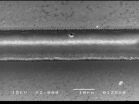(Press-News.org) Lent in the Christian tradition is a time of sacrifice and penance. It also is a period of purification and enlightenment. Pain purifies. It atones for sin and cleanses the soul. Or at least that's the idea. Theological questions aside, can self-inflicted pain really alleviate the guilt associated with immoral acts? A new study published in Psychological Science, a journal of the Association for Psychological Science, explores the psychological consequences of experiencing bodily pain.
Psychological scientist Brock Bastian of the University of Queensland, Australia and his colleagues recruited a group of young men and women under the guise they were part of a study of mental and physical acuity. Under this pretense, they asked them to write short essays about a time in their lives when they had ostracized someone; this memory of being unkind was intended to prime their personal sense of immorality—and make them feel guilty. A control group merely wrote about a routine event in their lives.
Afterward, the scientists told some of the volunteers—both "immoral" volunteers and controls—to stick their hand into a bucket of ice water and keep it there as long as they could. Others did the same, only with a soothing bucket of warm water. Finally, all the volunteers rated the pain they had just experienced—if any—and they completed an emotional inventory that included feelings of guilt.
The idea was to see if immoral thinking caused the volunteers to subject themselves to more pain, and if this pain did indeed alleviate their resulting feelings of guilt. And that's exactly what the researchers found. Those who were primed to think of their own unethical nature not only kept their hands in the ice bath longer, they also rated the experience as more painful than did controls. What's more, experiencing pain did reduce these volunteers' feelings of guilt—more than the comparable but painless experience with warm water.
According to the scientists, although we think of pain as purely physical in nature, in fact we imbue the unpleasant sensation with meaning. Humans have been socialized over ages to think of pain in terms of justice. We equate it with punishment, and as the experimental results suggest, the experience has the psychological effect of rebalancing the scales of justice—and therefore resolving guilt.
###
For more information about this study, please contact Brock Bastian at b.bastian@uq.edu.au.
The APS journal Psychological Science is the highest ranked empirical journal in psychology. For a copy of the article "Cleansing the Soul by Hurting the Flesh: The Guilt-Reducing Effect of Pain" and access to other Psychological Science research findings, please contact Tiffany Harrington at 202-293-9300 or tharrington@psychologicalscience.org.
Cleansing the soul by hurting the flesh: The guilt-reducing effect of pain
2011-03-09
ELSE PRESS RELEASES FROM THIS DATE:
March GSA Today: The case for a neoproterozoic oxygenation event
2011-03-09
The Cambrian "explosion" of multicellular animal life is one of the most significant evolutionary events in Earth's history. But what was it that jolted the Earth system enough to prompt the evolution of animals? While we take the presence of oxygen in our atmosphere for granted, it was not always this way.
The Neoproterozoic era that preceded the Cambrian explosion of life was witness to a dramatic rise in oxygen levels. It has been widely assumed that the rise in atmospheric oxygen was the essential precursor to the evolution of animals. But the work of Graham Shields-Zhou ...
UNC study finds oral tongue cancer increasing in young, white females
2011-03-09
Chapel Hill, NC – A UNC study released this week in the Journal of Clinical Oncology finds an increasing incidence of squamous cell carcinoma of the oral tongue in young white females in the United States over the last three decades.
A team of researchers from UNC Lineberger Comprehensive Cancer Center analyzed data from the National Cancer Institute's Surveillance, Epidemiology and End Results (SEER) database and found that, between 1975 and 2007, the overall incidence for all ages, genders, and races of the disease was decreasing. However, the incidence of oral tongue ...
Real March Madness is relying on seedings to determine Final 4
2011-03-09
CHAMPAIGN, Ill. — Think picking all the top-seeded teams as the Final Four in your March Madness bracket is your best bet for winning the office pool? Think again.
According to an operations research analysis model developed by Sheldon H. Jacobson, a professor of computer science and the director of the simulation and optimization laboratory at the University of Illinois, you're better off picking a combination of two top-seeded teams, a No. 2 seed and a No. 3 seed.
"There are patterns that exist in the seeds," Jacobson says. "As much as we like to believe otherwise, ...
It's all in a name: 'Global warming' vs. 'climate change'
2011-03-09
ANN ARBOR, Mich.---Many Americans are skeptical about whether the world's weather is changing, but apparently the degree of skepticism varies systematically depending on what that change is called.
According to a University of Michigan study published in the forthcoming issue of Public Opinion Quarterly, more people believe in "climate change" than in "global warming."
"Wording matters," said Jonathon Schuldt, the lead author of the article about the study and a doctoral candidate in the U-M Department of Psychology.
Schuldt co-authored the study with U-M psychologists ...
Ultrafast laser 'scribing' technique to cut cost, hike efficiency of solar cells
2011-03-09
WEST LAFAYETTE, Ind. - Researchers are developing a technology that aims to help make solar cells more affordable and efficient by using a new manufacturing method that employs an ultrafast pulsing laser.
The innovation may help to overcome two major obstacles that hinder widespread adoption of solar cells: the need to reduce manufacturing costs and increase the efficiency of converting sunlight into an electric current, said Yung Shin, a professor of mechanical engineering and director of Purdue University's Center for Laser-Based Manufacturing.
Critical to both are ...
Oldest known wild bird in US returns to Midway to raise chick
2011-03-09
MIDWAY ATOLL — The oldest known U.S. wild bird – a coyly conservative 60 -- is a new mother.
The bird, a Laysan albatross named Wisdom, was spotted a few weeks ago with a chick by John Klavitter, a U.S. Fish and Wildlife Service biologist and the deputy manager of the Midway Atoll National Wildlife Refuge.
The bird has sported and worn out 5 bird bands since she was first banded by U.S. Geological Survey scientist Chandler Robbins in 1956 as she incubated an egg. Chandler rediscovered Wisdom in 2001. In 1956, he estimated Wisdom to be at least 5 years old then since ...
NYSCF – Robertson investigator publishes research to better understand pluripotent stem cells
2011-03-09
NEW YORK CITY (March 7, 2011)— Paul Tesar, PhD, of Case Western Reserve University, a member of the inaugural class of The New York Stem Cell Foundation – Robertson Investigators, published his research on the ability to isolate epiblast stem cells from preimplantation mouse embryos. This research enhances our understanding of the many forms of pluriportent stem cells that scientists use for researching so many debilitating diseases.
"I think that this paper will change the way people think about what human ES cells represent from a developmental perspective," said Dr. ...
ADAM-12 gene could hold key to cancer, arthritis and cardiac treatments
2011-03-09
COLUMBIA, Mo. ADAM-12 is not only the name of a 1970's television police drama – it's also the gene that University of Missouri researchers believe could be an important element in the fight against cancer, arthritis, and cardiac hypertrophy, or thickening of the heart's walls.
Alpana Ray, research associate professor in the MU College of Veterinary Medicine, and a team of researchers including Bimal Ray, professor of Veterinary Pathobiology, have been studying the ADAM family of genes for several years. Alpana Ray's latest publication in the Proceedings of the National ...
Colonoscopy linked to decrease in colorectal cancer deaths, but many more could have been prevented
2011-03-09
OAK BROOK, Ill. – March 8, 2011 – In recognition of National Colorectal Cancer Awareness Month during March, GIE: Gastrointestinal Endoscopy has published a special issue for March on colonoscopy and colorectal cancer. The issue includes a study showing that colonoscopy has prevented a substantial number of deaths from colorectal cancer and that many more could have been prevented with more widespread use. The analysis reports that approximately 13,800 to 22,000 colorectal cancer deaths could have been prevented in 2005, whereas 7,300 to 11,700 were actually prevented through ...
When work calls: Study shows that receiving work-related contact at home takes greater toll on women's well-being
2011-03-09
FOR IMMEDIATE RELEASE from the UNIVERSITY OF TORONTO
March 8, 2011
TORONTO, ON – Communication technologies that help people stay connected to the workplace are often seen as solutions to balancing work and family life. A new study, however, suggests there may be a "dark side" to the use of these technologies for workers' health – and these effects seem to differ for women and men.
Using data from a national survey of American workers, University of Toronto researchers asked study participants how often they were contacted outside the workplace by phone, email or text ...

